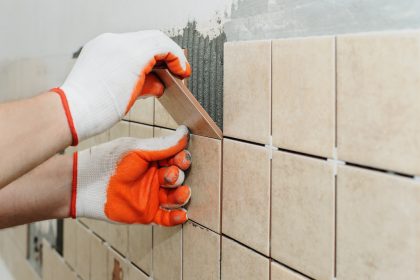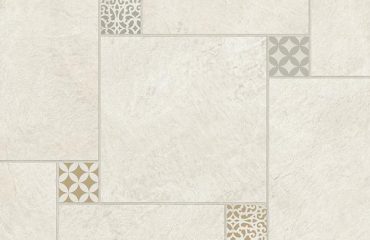
Tiles are a stunning flooring choice that’s durable, attractive and easy to clean. Ceramic and porcelain tiles actually fall under the same category as ‘ceramic’ tiles, but are differentiated based on their attributes and qualities. While these terms are often used interchangeably, ceramic and porcelain tiles are actually two different distinctive materials. Porcelain is of a slightly finer quality, which explains the higher price tag. But when it comes to which tiles wears better and looks right in your space, it’s important to look at the differences more closely.
What’s the Difference?
While porcelain and ceramic tiles are essentially made of the same material, there are some differences that need to be considered when deciding between porcelain or ceramic tiles for flooring. Both ceramic and porcelain tiles are long-lasting, easy to clean and water resistant. They can be used for flooring as well as walls, counters, bathrooms and kitchens, making them versatile for a range of settings.
The main difference between these two tile types is that porcelain tile is made with a finer, denser clay, then baked at a high temperature for a longer time to ensure a greater water content is removed from the clay. This longer baking time results in a harder, denser, more durable and stain resistant tile.
Evaluating Wear
When it comes to evaluating which type of tile will wear better, there are several different characteristics we can look at, including appearance, durability, density, stain resistance, and Porcelain Enamel Institute (PEI) Rating.
Appearance
When it comes to which tile appearance is superior, beauty is in the eye of the beholder. Some people love the smooth, flawless glaze of porcelain tiles while others prefer the rustic quality of ceramic tiles that are available in a range of different colors. One of the easiest ways to determine which tile appearance you prefer is to visit a tile flooring company’s warehouse and see some tile samples in person. This helps you evaluate which qualities of tile appearance you prefer.
Density
The density of a tile is a quality that can be observed through appearance, feel and wear. Porcelain tile is of a higher density by virtue of it being composed of denser clay, and being fired for a longer time. This results in a finer grain of the tile, and a lower water content. Because porcelain tile contains less water and is denser, it can stand up to freezing temperatures and is also much more durable. The density of porcelain tile also means it is less likely to absorb water and stain.
Durability
When it comes to durability, porcelain is definitely the better choice. Porcelain can stand up to much greater foot traffic and because of its density can also withstand greater loads. Porcelain tile absorbs less water, and has a reduced risk of cracking due to freezing temperatures. Because the composition of porcelain is more refined the color remains the same all the way through the tile. If the glaze is chipped on a ceramic tile, the color underneath will appear different. However, if a porcelain tile is chipped, the chip will be near invisible.
Stain Resistance
Ceramic tiles are less dense, and therefore more porous than ceramic tiles. This means they are more likely to absorb spills and hold stains that spoil the appearance of your tiled floors. On the other hand, porcelain tiles are dense and more water resistant, so they clean easily and don’t absorb spills and stains. This means that your porcelain tiles retain a fresh, ‘as new’ appearance and don’t look worn as quickly as ceramic tiles might.
Porcelain Enamel Institute (PEI) Rating
PEI ratings provide a numerical indication of the wear and load a tile can take. Most porcelain tiles have one of the highest PEI ratings of around 5, which means they can withstand heavy residential or commercial traffic. On the other hand, ceramic tile ratings can be highly variable, with some receiving a rating of 5, but most in the lower ranges around 2-3. This indicates that ceramic tiles are able to withstand lower loads and therefore less wear than porcelain tiles overall.
While there are many similarities between porcelain and ceramic tiles, there are some very distinct differences between the two. Porcelain tile is denser, stronger, and more water resistant, making it the better wearing tile overall. However, it’s important to discuss your flooring choice with a flooring expert to ensure you take all characteristics into account when choosing your new flooring.



